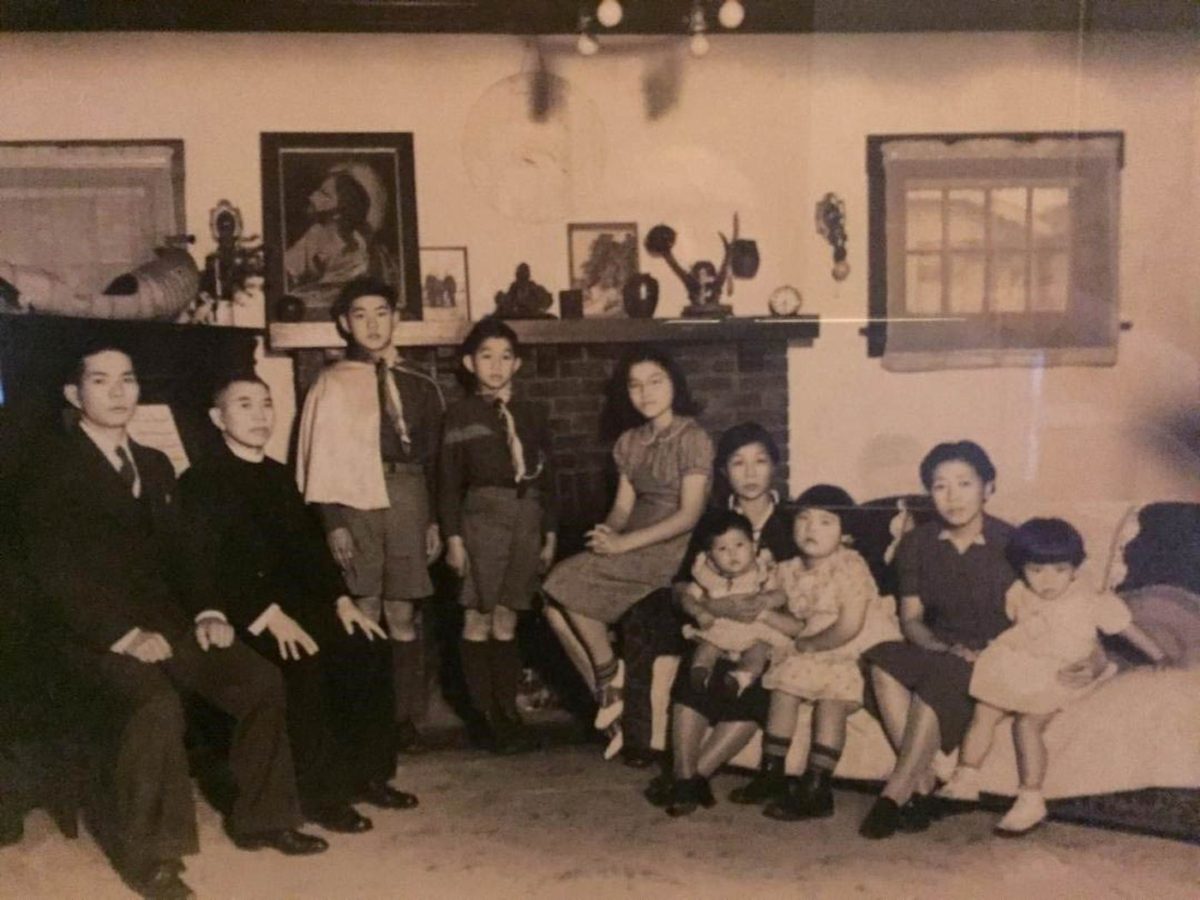By Guest Contributor: Joseph Shoji Lachman
Kurt Suzuki, who is a yonsei (or, 4th generation Japanese American), wore a “Make America Great Again” hat — a disgusting white supremacist symbol — when visiting the White House last week. It was horrifying, and symbolic of larger issues of Asian American adjacency to white privilege.
The question I always want to pose to these Trump-supporting Japanese Americans is: How can you support a guy whose campaign and supporters have voiced support for the incarceration of Japanese Americans, and who have used that history as a justification for oppressing other minority groups?
Suzuki couldn’t even muster an apology. He later said he was just trying to ‘have some fun.’
I wonder if Suzuki could go to a migrant concentration camp, look a mother and child in the eyes while wearing that hat, and claim it’s just about having some fun. I wonder if he could look me in the eye as a fellow yonsei and say it’s just about having some fun.
I wonder if Suzuki could go to a migrant concentration camp, look a mother and child in the eyes while wearing that hat, and claim it’s just about having some fun. I wonder if he could look me in the eye as a fellow yonsei and say it’s just about having some fun.
I wonder if he has living Nisei relatives or just other Nisei that he knows who remember the camps, and if he could wear that hat, look them in the eyes and claim that it’s just about having some fun.
I want to be able to have pride in my Japanese American heritage. But when folks like Kurt Suzuki, Jennifer Nakamoto (part of the Nakamoto Group, which has contracted with ICE), or others from the community does this kind of trash, I instead feel this deep sense of shame. Every day, I have this deep anxiety that members of my own community are exploiting the Model Minority Myth at the expense of other communities of color, and all to uphold white supremacy.
I know that I shouldn’t feel this, and yet I’ve also realized that this is part of the multigenerational trauma that Japanese Americans experience to this day. It stems from a time when we feared that any misstep would be used to justify racism and oppression against our community.
This [anxiety] is part of the multigenerational trauma that Japanese Americans experience to this day. It stems from a time when we feared that any misstep would be used to justify racism and oppression against our community.
But I also think of Japanese Americans who are actively engaged in the work of anti-racism and collective liberation. Most importantly for myself, I know that my own work I do professionally and in our community would and has made my Nikkei family proud.
My Bachan’s Nisei sisters are still alive. They are in their 80’s and 90’s, and I teared up a little when they told me how proud they were of me for the work that I do. This was after we’d sat and talked for a while about what it was like for them during their imprisonment at Tule Lake and Heart Mountain.
So, today, I’m sharing a picture of the Shojis, my mom’s father’s family members who were forced to leave their home and endure imprisonment for years in the desert at Minidoka. They inspire me every day to do the work I do, and help give me my moral center and my principles. I’m not perfect, and I make mistakes, but being grounded by knowing my family history helps me strive to be a better person each day and stay rooted in community.
My Great-Aunt Florence, who is sitting next to my Great-Grandmother Kane in the photo above, died because of the concentration camp conditions which exacerbated the health problems she experienced because of her disabilities. She died at 3 AM after an hour-long seizure, while separated from her family and housed in a state institution for folks with disabilities. She was labeled an ‘inmate’ on her death certificate. But she was a beautiful child, and my great grandparents loved her dearly, and she continues to inspire me.
My Great Uncle Sam Shoji (4th from the left) said it so eloquently to the Seattle Times back in 1988 when Redress passed: “Hopefully, this will teach a lesson so the country can’t do this again. If something like this could happen to us, it could happen to anybody.”
Uncle Sam taught me to speak up.
That’s what helps me keep going each day.
Note: An earlier version of this post used the word “garbage” to describe Trump-supporting Japanese Americans, which may be open to reader misinterpretation. At the request of the author, this essay has been updated to clarify the author’s original intent.
Joseph Shoji Lachman is a fourth/fifth generation Japanese American born and raised in Seattle. His community activism focuses on organizing in Asian American/Pacific Islander communities, as well as immigrant/refugee communities broadly. He works full time as the Civic Engagement Program Manager for Asian Counseling and Referral Service in Seattle, Washington.
Learn more about Reappropriate’s guest writing program and submit your work here.

